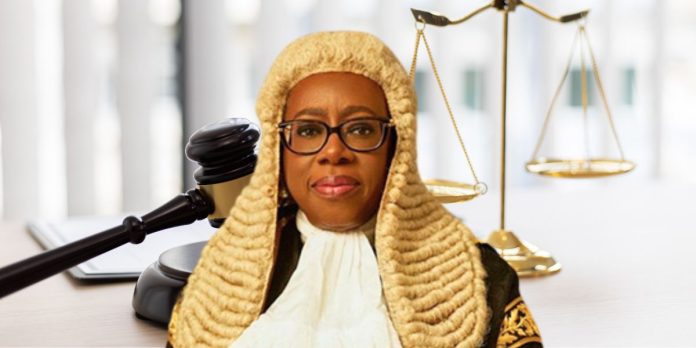THE Chief Justice of Nigeria, Justice Kudirat Kekere-Ekun, says that the Nigerian Judiciary has a lot of upright knowledgeable, hardworking and courageous judges, but lamented that there are a few tarnishing this reputation.
The CJN made this known at a public discourse in Lagos which had the theme, “Ethics, Morality And The Law”.
The event was held in honour of Justice Habeed Abiru who was recently elevated as a justice of Supreme Court Justice.
Justice Kekere-Ekun, who was the Chairperson of the event, used the opportunity to advice all judges to remember that as “individuals, each person is accountable to his or herself and to God”
She stressed that public acceptance of the law also hinges on its alignment with fundamental principles, the need for clarity, stability and independence of the judiciary, as well as the fair exercise of authority by law enforcement.
She added that the perspective of the ordinary citizen, who observes and assesses the extent to which ethics, morality and the law coexist harmoniously in society must be taken into consideration.
According to the CJN, the foundations of justice that we rely upon today, are influenced by the Abrahamic faith prevalent in our society, adding that both Islam and Christianity preach morality uprightness and righteousness.
She said “The role of the legal practitioner within this framework, merits particular attention. The lawyer, often seen as both antagonist and protagonist in the pursuit of justice, must navigate a terrain, where law, ethics and morality intersect.
“This dual role requires balancing the scriptures and the law with ethical constitutions, often containing with moral and legal questions that may seem at odds. As a minister in the temple of justice, the lawyer’s commitment to justice involves upholding legal standards, while advancing principles that follow society’s ethical expectations.
“The essence of the students is indeed the study of this relationship between morality, ethics and the law, especially when considering the historical distinction between courts of law and courts of equity, which reflects humanity’s ongoing quest to balance justice with fairness.


